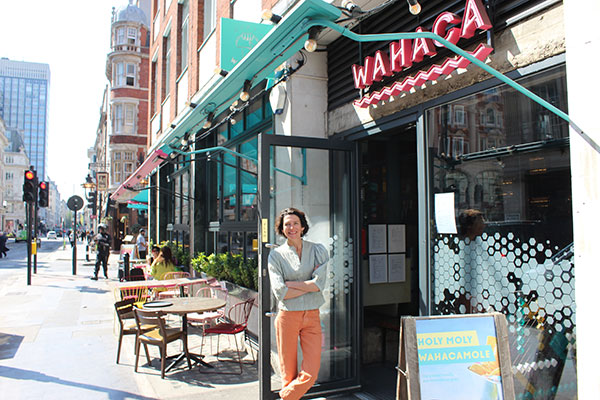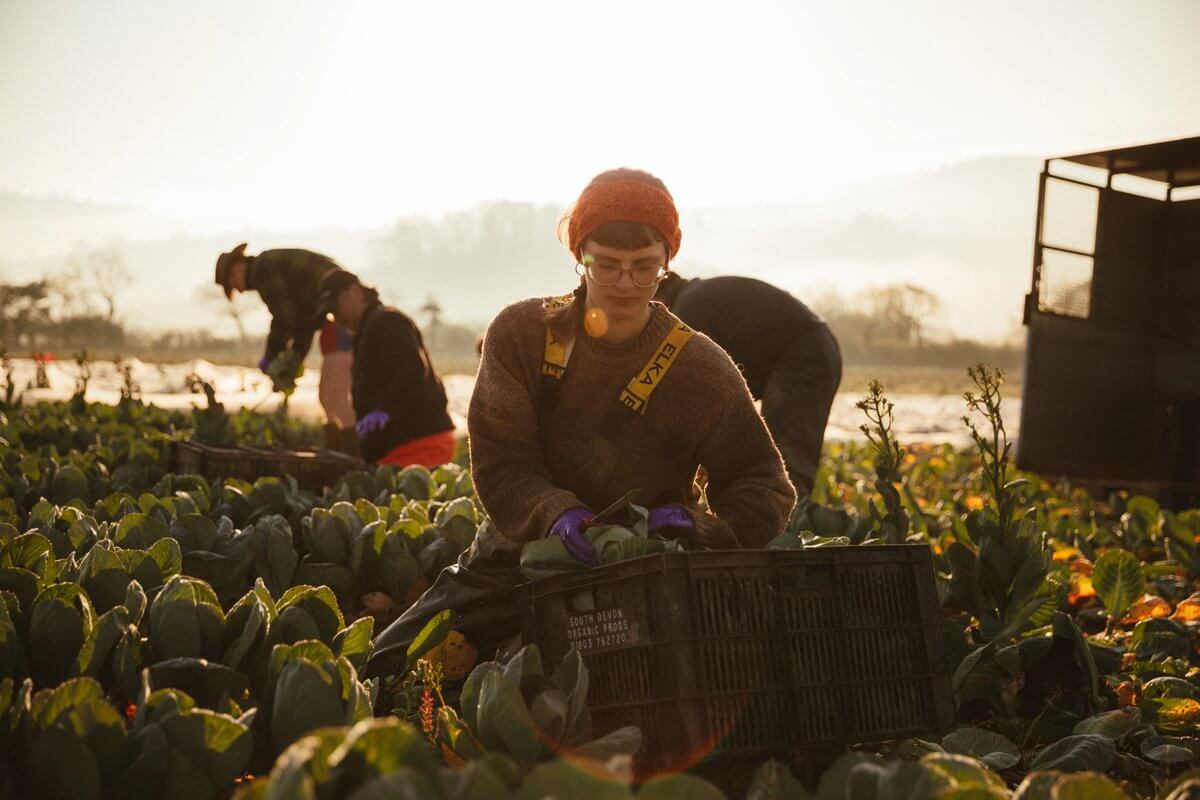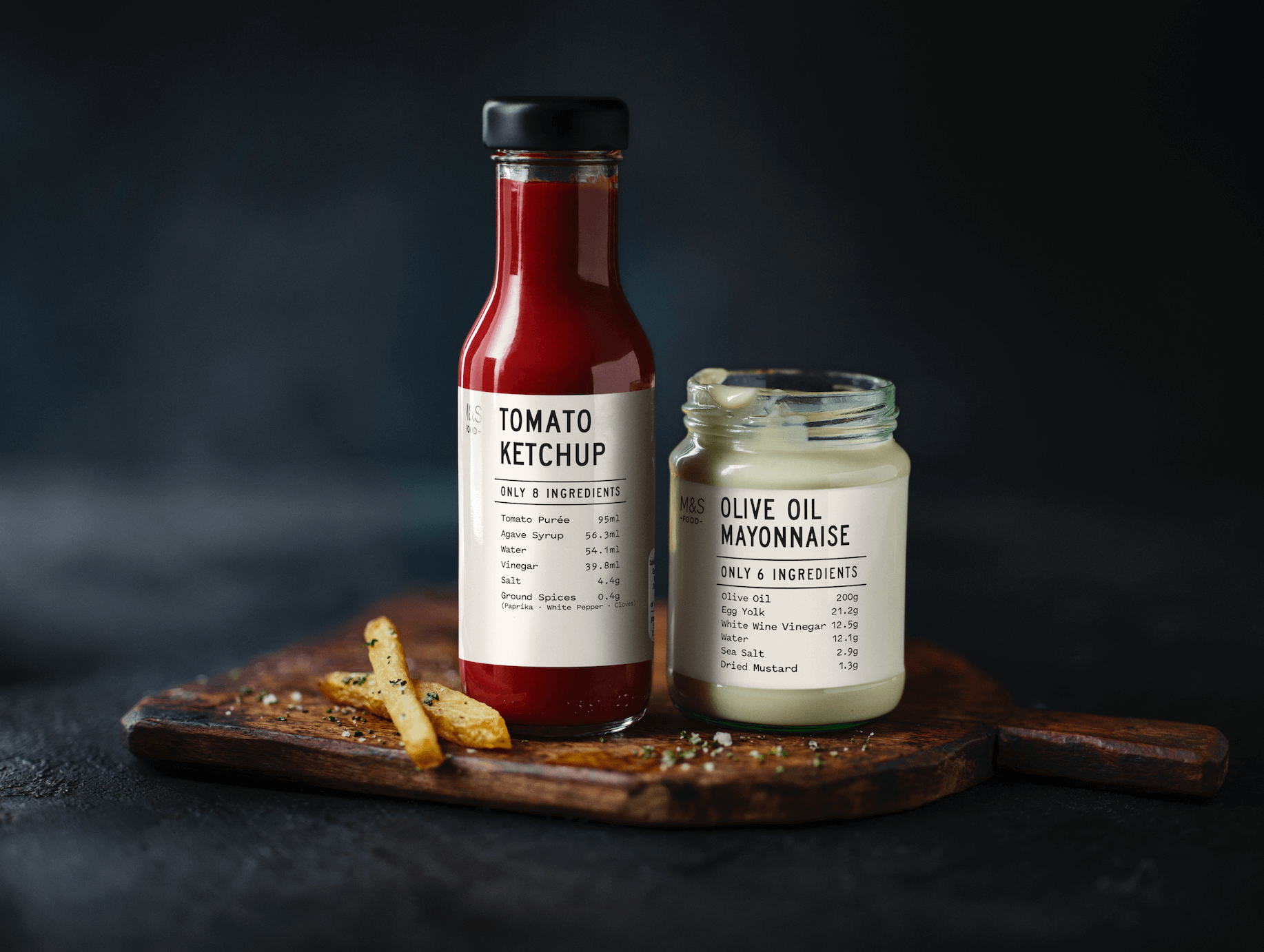“I was like sonic the hedgehog, I had a lot of catching up to do,” laughs Thomasina Miers, MasterChef winner, food writer and co‐founder of the Mexican street food chain Wahaca, as she describes the moment she discovered her calling at the ripe old age of 26.
“I basically serially tried different careers and found out that I was pretty bad at most of them,” says Miers, explaining how she bounced from accountancy to advertising, then consultancy and the ‘dot com’ boom. But the seed for her self‐proclaimed ‘late bloom’ was sown on a trip to Mexico aged 18, in 1994.
“It opened my eyes to the fact that Mexico had this extraordinary cuisine,” says Miers, eyes wide with nostalgia recounting the sensory overload of the vibrant flavours, snout-to-tail eating, incredible variety of vegetables and the intricate preparation of sauces.
“I just ate everything in sight, all of the insects; I ate at every food stand that was busy,” she says. “I was just fascinated by this food I had never heard anything about.”
But upon her return to the UK, she discovered that the so‐called ‘Mexican food’ here bore no resemblance to the food she delighted in on her travels.
“Across the UK, Europe, Australia, Mexican cuisine was unheard of. Tex‐Mex basically convinced the whole world that it was Mexican. It was this great gastronomic secret,” says Miers.

But it took some time before she took the idea further. First Miers enrolled at the renowned cookery school in Cork, Ballymaloe, under the tutelage of Irish cooking legend, Darina Allen, who according to Miers was: “talking about soil 25 years ago. She was completely ahead of her time.”
A second trip to Mexico consolidated the concept in her mind, and a MasterChef victory in 2005 propelled it to reality. Three years later she opened the first Wahaca in London’s Covent Garden and it proved to be an immediate hit.
“We had no idea that it would be quite so popular — we had a queue snaking out up the staircase and around the corner for the first two years until we had another site,” says Miers.
Bright colours and affordable street food are mainstays of the Wahaca experience, but it’s fair to say you might not automatically think of it as a paragon of sustainability.
But Miers claims this has been a central pillar from the off: “When we started, we didn’t want to lecture people, but it’s woven through the business.
“When we opened in 2007, we were the second restaurant in London to recycle our food waste,” says Miers, evidencing the surplus cauliflower leaves rescued for her guinea pigs back in west London.
Despite sourcing exotic items like chillies from afar, Wahaca also aims to combine both authenticity and sustainability with things like its ‘Wahacamolé’, made from homegrown fava beans instead of ethically dubious avocados.
The issue of authenticity and cultural appropriation is also a pertinent one, and has “plagued” Miers since the beginning, she says. Is she simply bringing the joy of Mexican food to new audiences, as she recalls the Mexican ambassador naming her “Mexico’s greatest ambassador”?
Or is she appropriating Mexican culture and profiting from it?
Miers says it’s certainly not black and white and contends that recipes have been “begged, borrowed and stolen for Millenia” and highlights that even the iconic Mexican dish, Tacos al Pastor, is a version of a Lebanese kebab that immigrants brought over.
Clearly sensitive to the issue, she pays homage by supporting several food charities in Mexico City and the company offsets its remaining emissions through biodiversity projects in the country.

And biodiversity is a big deal in Mexico, which has been named a “mega diverse” nation, home to over 200,000 species and 12 per cent of global biodiversity. Traditional Mexican diets are incredibly diverse, and as Miers explains, this way of eating is not just delicious but also sustainable.
“Sustainability is inherent in [traditional] Mexican cuisine,” says Miers. “It was a diet rich with incredible diversity of vegetables and fruit. The protein came from the massive diversity of beans, molé [traditional Mexican sauce] is enriched with nuts and seeds, and corn is an absolute superfood packed full of minerals and vitamins.”
And central to this plant‐rich diet is an ancient indigenous system of farming that produces high yields of diverse fruit and veg to flourish symbiotically without the need of chemical pesticides or fertilisers. It’s called the Milpa.
“The bean climbs up the corn stem. The bean fixes the nitrogen that the corn needs and the courgette and squash is planted below, those prickly leaves from the courgette plant stops the insects crawling around,” says Miers.
It’s a system that home gardeners might also recognise or know as ‘the three sisters’, where corn, beans and squash are grown together for mutual benefits
“They provide a mulching system to keep the moisture in the earth. Within that they plant the chillies, the tomatoes, herbs and wild leaves,” add Miers.
The Milpa system farms in harmony in nature, using ingenious natural design to preserve Mexico’s biodiversity through using ancient varieties that are more resilient to climate change and don’t require chemical inputs. And according to Miers, it’s making waves beyond central America.
“That Milpa system is essentially how we’re beginning to farm again in modern regenerative farming,” she says.
Might these practices and way of eating hold the answer to our dysfunctional food system? As ever, it shouldn’t come as a shock that indigenous people with a deep connection to the land and environment have long been pioneers in sustainable farming and healthy eating.
All of this is the bedrock of Miers’ new book, Meat Free Mexican, celebrating the wisdom of Mexican food culture through vibrant, veg-led recipes.
“I love that in one book, you can have that overarching timeline between ancient Mexican and modern ways of eating that is healthy, delicious, sustainable, colourful and fun,” Miers says.
“We’re talking about whole ingredients, less meat, better quality and massive amounts of different vegetables.
“That is the key to great gut health, feeling good, looking good and the planet being happy. Mexico is a proper celebration of that.”
Meat-free Mexican by Thomasina Miers (£25 Hodder & Stoughton) is out now.










0 Comments